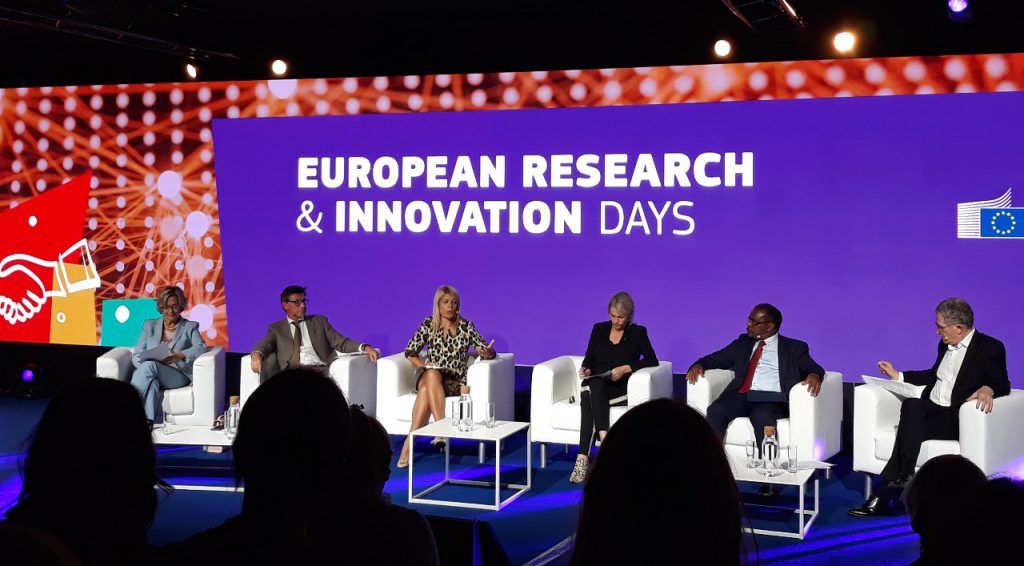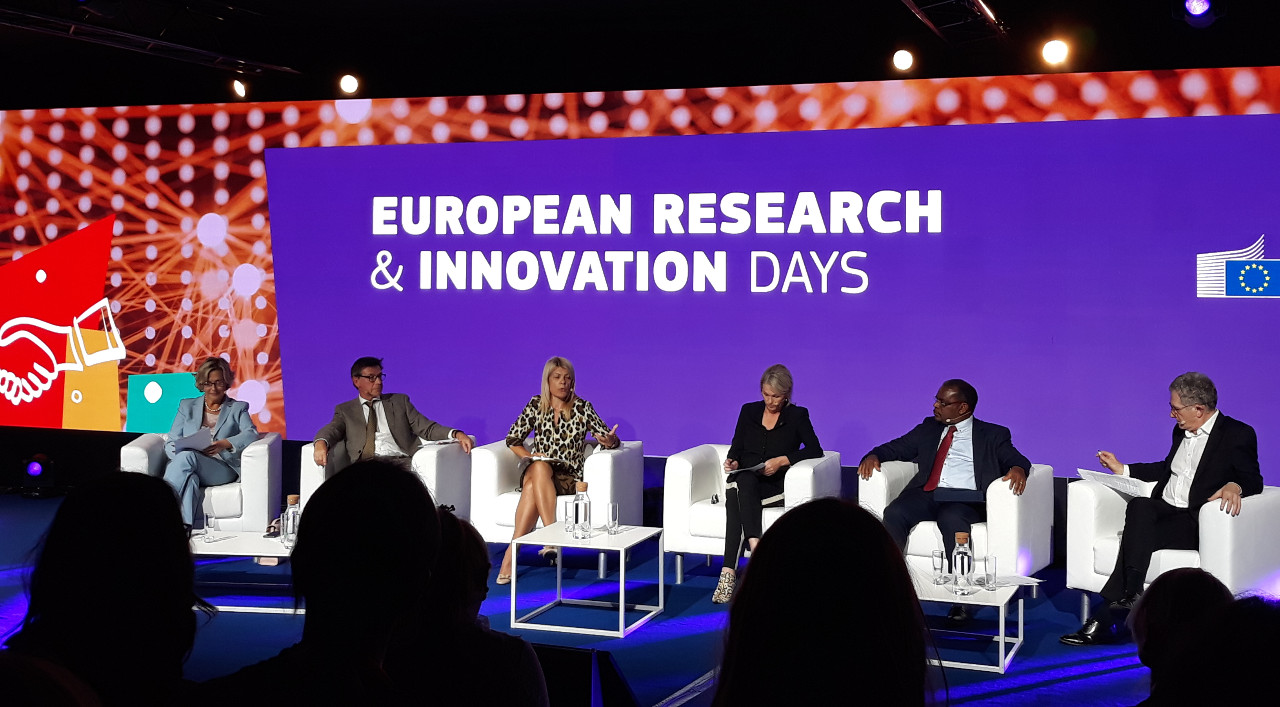
Over six thousand people, including researchers, research administrators and politicians, gathered in Brussels last week at the European Research and Innovation Days – a three days policy conference organized by the European Commission to boost co-designing of the new EU Framework Programme for research and innovation – Horizon Europe. KANAL Centre Pompidou in the heart of Brussels was an excellent venue for this kind of mass event. I had the pleasure and privilege to participate in the event as a Research Funding Specialist of the UTU Research Funding team, but also as a Global South researcher with the UniPID (Finnish University Partnership for International Development) FinCEAL+ programme delegation. This dual role was smoothly merged providing an absolutely rewarding experience for me on combining research, research administration, and research policy.
“Get Involved” was one of the main themes in the event, reflecting the co-design and open consultation process of the Horizon Europe. The conference comprised of around 40 co-design sessions and around 90 sessions that were either open or required registration. This novel co-design concept of implementing Horizon Europe with stakeholders and an interested public was, at least in theory, an excellent idea with a good intension to involve as many people as possible in the strategic planning of Horizon Europe. A lot of effort was put into co-design during the event, also in the form of private meetings that one could fix with experienced staff to discuss about the progamme priorities and implementation. However, the information on these possibilities came very late making it rather difficult to reserve time slots for the meetings. The open co-design process will be finalized soon with online consultations, and it remains to be seen how successful the co-design process has been in practice.
The event was huge, so that the entrance was limited mostly for one day per person only. That of course didn’t allow to participate in all sessions that one would have liked to. Luckily there was an excellent possibility to follow the sessions by live streaming. I especially enjoyed the charm and motivating live-streamed conversation by Jean Eric Paquet, Carlos Moedas and Mariana Mazzucato about the missions, one of my favorite elements in Horizon Europe. Missions, on the other hand, have also been criticized to be only a well-succeeded PR trick of the Commission to boost the new Framework Programme, a citizen engagement in particular. To my opinion, missions do have a crucial role as umbrella-type topics in the Global Challenge pillar of the programme, being itself ambitious but achievable goals that encourage to novel solutions when tackling with global challenges. They are drivers of the direction where we want to go, as Moedas said.
“Going Global”, was my other take-home message from the event, but unfortunately not with an explicit meaning. Brexit was clearly shadowing the conversations of going global and the whole atmosphere around this topic. As a Global South researcher, I would have liked to hear more about the concrete possibilities of Global South regions to participate in the next EU Framework Programme. To my opinion, going global – and I mean really global – has a crucial role in the missions of Horizon Europe, at least in those of Healthy Oceans and Climate Change Adaptation, and actually in the whole Global Challenge pillar of the programme.
All in all, the event was an inspiring experience, even though there was a moment when I felt myself as a homeless vagabond walking in the rainy streets of Brussels without a place to tilt my head (due to a logistic failure in my accommodation). That was luckily soon solved, but this short experience being homeless in the heart of the Europe made me realize, how vulnerable we people actually are. World itself is not vulnerable – the vulnerability enters the stage when humans are involved, exploiting the nature and transforming landscapes, and this of course affect ourselves too. I hope that the next Framework Programme, Horizon Europe, will tackle the vulnerability in the global scale, so that we could broaden our view from the European future to the global future.
